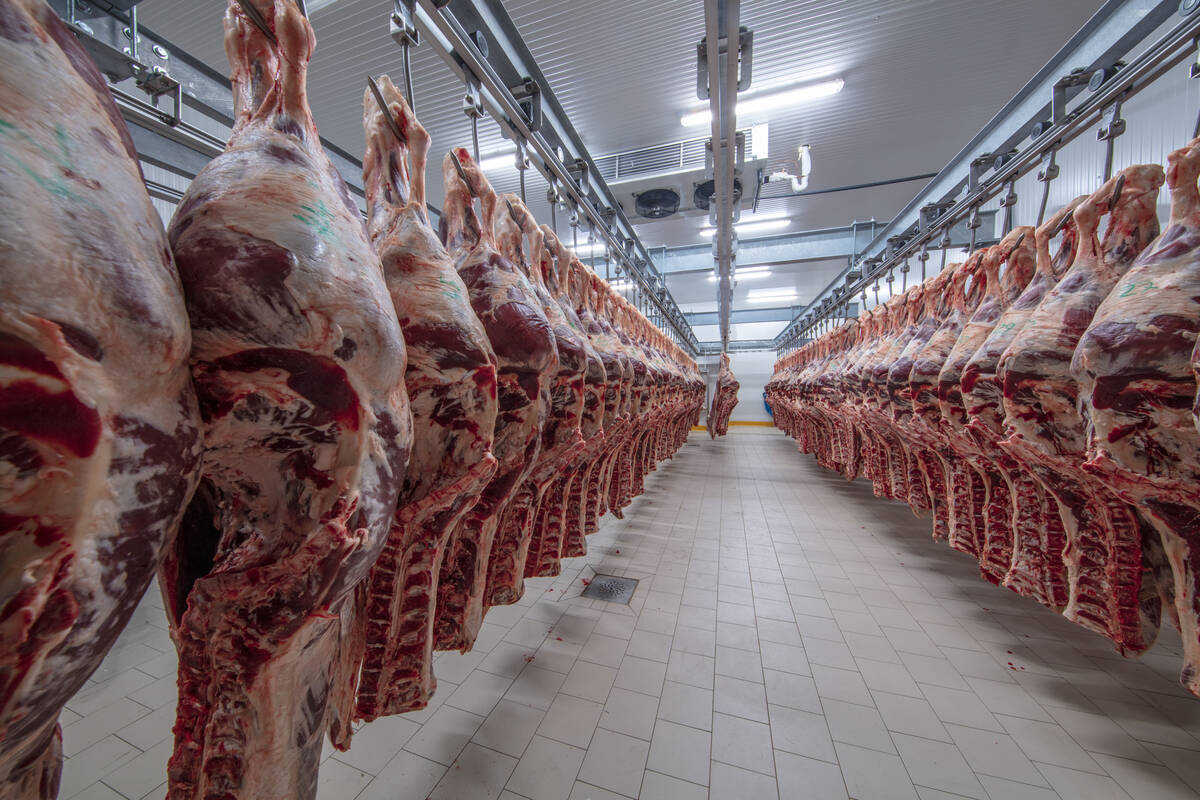The federal government’s bill to deregulate Prairie wheat and barley marketing is now the target of a second lawsuit questioning the bill’s legitimacy.
Where a previous pre-emptive suit by supporters of the Canadian Wheat Board had aimed to derail the bill before its introduction, this time the CWB itself and a quorum of its board of directors are filing for judicial review — in tandem with the previous suit, if possible — to prevent Bill C-18 from becoming law.
The board filed suit Wednesday in Federal Court in Winnipeg, claiming the government broke the law by introducing C-18 because it didn’t first conduct a plebiscite of affected producers as per section 47.1 of the federal CWB Act.
Read Also

U.S. livestock: Feeder contracts surge, hogs rise
Chicago feeder cattle contracts surged on Thursday. Live cattle and lean hogs also made healthy gains. Most-active April live cattle…
The CWB Act, which is still in force as C-18 makes its way through the House of Commons, requires that any changes to grains marketed under the CWB’s single-desk structure must first be approved by a vote of affected producers and consult with the CWB board of directors.
The CWB, acting without Ottawa’s support, conducted a farmer vote this summer in which 62 per cent of eligible votes were cast in favour of retaining the single desk for Prairie wheat, and 51 per cent in favour of the single desk for barley.
“A majority government does not confer absolute power or create a dictatorship,” CWB chairman Allen Oberg, who farms at Forestburg, Alta., said in a release Wednesday.
“Winning a majority of seats in the House of Commons does not bestow the right to sidestep rules created by previous governments in the interests of fairness, democracy and due process.”
Agriculture Minister Gerry Ritz’s Bill C-18 passed second reading in the House of Commons on Monday and was referred to a Commons committee for review.
C-18 calls for Prairie farmers to be able to forward-contract sales of wheat and barley to anyone, the CWB included, for delivery after Aug. 1, 2012, and to be able to make sales directly to any domestic or export buyer after that date.
“We disagree”
When passed, C-18 would also see the CWB’s current board reduced to five government appointees, shutting out its 10 farmer-elected directors.
“If it can remove a democratically elected board — simply because we disagree with them — Canadians should ask themselves who’s next on their hit list,” Oberg said. “If they can ram this important legislation through Parliament by limiting debate, where does it end?”
Apart from the CWB itself, the new suit’s plaintiffs include the eight farmer-elected CWB directors known to support the single desk. Elected directors Henry Vos and Jeff Nielsen are not parties to the suit.
Oberg emphasized that the new suit “is not about saving the CWB. This is about farmers being allowed to decide for themselves whether they want this type of grain-marketing structure. All the evidence shows that they do.”
The first legal case against C-18 was filed in late June in Federal Court in Winnipeg by an unrelated pro-CWB group of farmers, Friends of the Canadian Wheat Board.
That suit, which also seeks a judicial review of the federal government’s plans, was filed shortly after the Conservatives won their majority government in May, long before C-18 was drafted or introduced. It also cites section 47.1 of the CWB Act in challenging the legitimacy of a bill such as C-18.
The CWB’s court application, filed on its behalf by Toronto lawyers John McDougall and Matthew Fleming, notes its issues are “essentially the same” as those raised in the FCWB suit, and asks that the two applications be heard together in Federal Court to “reduce costs for the parties and conserve judicial resources.” The FCWB suit’s next hearing is scheduled for Dec. 6.
“Right to amend”
The bill’s lead opponent in the Commons, however, appears to disagree with Oberg’s view that C-18 can’t withstand the CWB Act in court.
Winnipeg NDP MP Pat Martin, the official Opposition critic for the CWB, was quoted Wednesday by the Winnipeg Free Press as saying he doesn’t hold out “any hope that that particular avenue of recourse could succeed, for the simple reason that governments have the right to amend legislation of previous governments.”
C-18’s legislative package comes partly in the form of amendments to the CWB Act itself, along with interim legislation setting up a new, voluntary version of the CWB — plus legislation that would see both the CWB Act and the interim legislation repealed entirely by Aug. 1, 2017.
Free Press reporter Larry Kusch quoted Martin as saying C-18’s progress is “a runaway freight train and I don’t think there’s any stopping it — I hate to say it — at this point.”
The CWB’s suit also points directly at Ritz for making “public representations that producer votes would be held in connection with any such changes” to the board’s marketing mandate.
The board claims its directors and farmers “expected the minister to fulfil his commitments and abide by his representations in this regard.”














